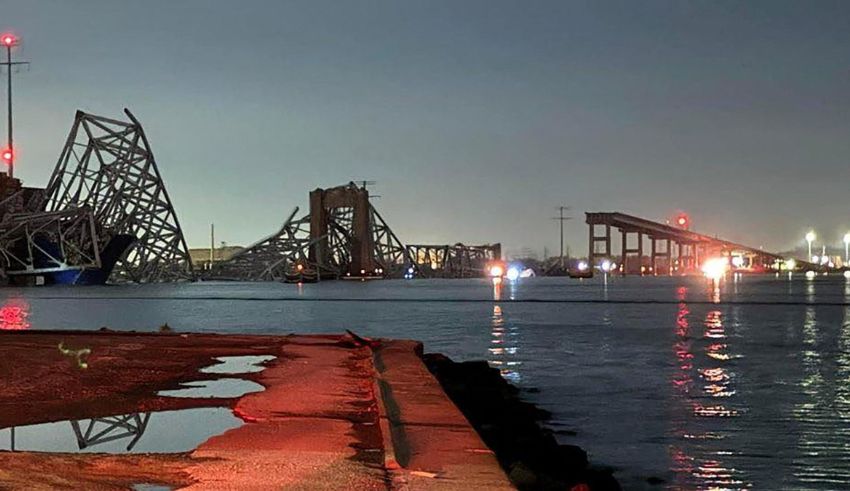
The Baltimore Bridge, a vital artery in the city’s infrastructure, experienced a catastrophic collapse that has left the community reeling. The incident occurred when the bridge was struck by a container ship, leading to a significant portion of the structure falling into the water below.
Immediate Aftermath and Rescue Operations
The collapse triggered an immediate response from emergency services. Search and rescue operations were swiftly initiated, with teams working tirelessly to locate and assist any survivors. The efforts were complicated by the hazardous conditions and the extensive debris field created by the fallen bridge.
Authorities have launched a comprehensive investigation to uncover the cause of the collapse. Early indications suggest that the container ship may have experienced a loss of propulsion, causing it to veer off course and collide with the bridge. The investigation is focusing on the ship’s mechanical systems and the actions of its crew in the moments leading up to the disaster.
Impact on Traffic and Commerce
The bridge’s collapse has had a profound impact on traffic flow and commerce in Baltimore. As a critical transportation link, its absence has led to significant delays and logistical challenges, affecting businesses and commuters alike. The economic repercussions are expected to be substantial and long-lasting.
The community’s response to the tragedy has been one of solidarity and resilience. Recovery efforts are underway, with state officials coordinating with federal agencies to address the immediate needs and begin the process of rebuilding. The incident has sparked a city-wide conversation about the state of infrastructure and the need for preventative measures.
Long-Term Implications and Policy Changes
The bridge collapse has raised important questions about infrastructure maintenance and oversight. It has prompted calls for policy changes to ensure the safety and reliability of critical structures. Experts are advocating for increased investment in infrastructure repair and advanced monitoring technologies to prevent future tragedies.
The Baltimore Bridge collapse serves as a somber reminder of the fragility of our built environment and the importance of vigilant maintenance. As the city mourns the loss and looks to the future, the events following the collapse will undoubtedly shape the discourse on urban planning and infrastructure management for years to come.




















